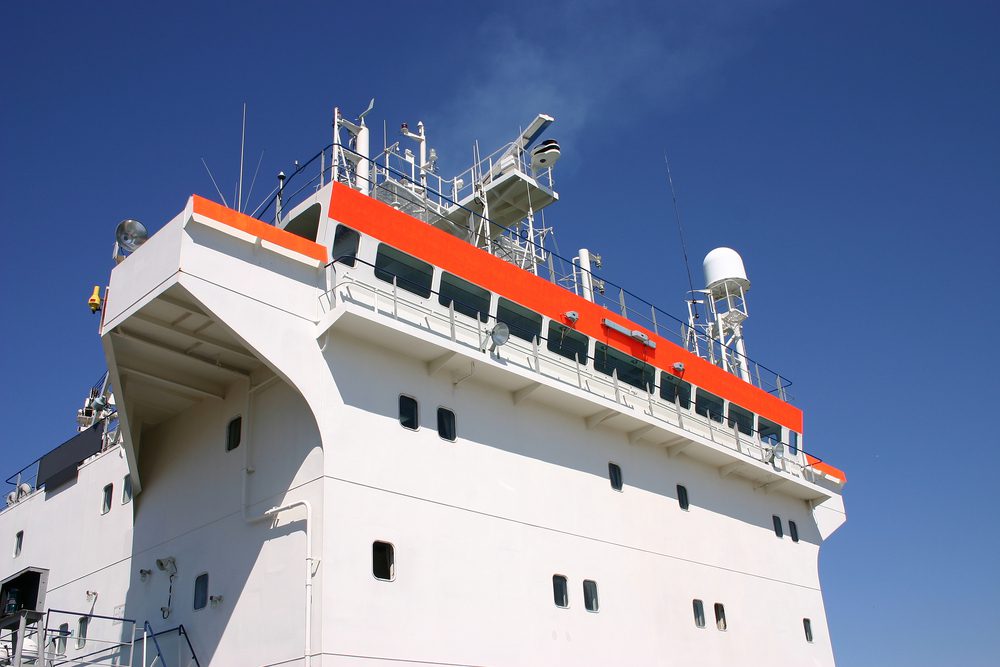FILE PHOTO: CITL / Shutterstock
Seafarers face “systemic failures” in the implementation of the regulations related to hours of work and rest, undermining the credibility of the very regulations meant to protect their rights, according to new report published by World Maritime University (WMU).
The report confirms previous research that suggested recording malpractices are widespread in maritime industry, which seriously questions the capacity of the current regulatory framework to prevent fatigue and mitigate its effects, according to the report’s authors, Dr. Raphael Baumler, Ms. Yvette deKlerk, Dr. Michael Ekow Manuel and Dr. Laura Carballo Piñeiro.
This is particularly concerning amid the on-going crew change crisis, where many seafarers are serving well beyond their contractual terms and having to take on additional tasks to combat the COVID-19 pandemic, according to the WMU.
“The analysis indicates that insufficient manning is the root cause of violations especially during peak workload conditions. Imbalance between workload and manning levels indicate that flag States do not always fulfil responsibilities, nor do they ensure that shipowners carry out theirs with due regard to efficient and sufficient manning levels on board ships.” the WMU said in a press release.
The fear of failing inspections and creating problems for shipping companies can outweigh the obligation to genuinely comply with international regulations, the report shows. “Employment insecurity accompanied by financial incentives contributes to an environment where adjustment instead of accuracy is the logical outcome. For seafarers, the sole objective of recording hours is to confirm compliance and avoid disruptions to the schedule,” the WMU said.
“In such an environment, requirements for reporting work/rest hours are seen, by seafarers, as merely a paper exercise. Additionally, software intended to support recordkeeping seems ‘gamed’ for compliance. Instead of improving accuracy, they effectively incentivise crew to adjust their records.”
According to the report, “they are trapped in cognitive dissonance, where deviance is normalised.”
“Many companies appear disinterested in seafarers’ feedback on this issue and flag State surveys are limited to reviewing paperwork with no verification of the reality of work on board. Inevitably the effectiveness of the International Safety Management (ISM) Code must be questioned,” the WMU stated.
According to Dr. Cleopatra Doumbia-Henry, President of the WMU, “Seafarers have a right to the protections set out in international maritime conventions and in particular in the Maritime Labour Convention, 2006 as amended as well as in the IMO STCW Conventions as amended. It is well known that fatigue leads to adverse impacts on health and wellbeing as well as increasing the risks of maritime accidents. This report is a wake-up call to regulators, industry and seafarers themselves. The system is flawed with respect to implementation and needs serious attention!”
The research received financial financial support from the ITF Seafarers’ Trust. “The findings are devastatingly comprehensive. Now the on us in on flags States, ports States, industry and unions to come together for the benefit of the seafarers to facilitate cultural change and restore the credibility of international maritime regulations,” said Dave Heindel, Chair of the ITF Seafarers’ Trust.
The authors of the report, titled A Culture of Adjustment, propose three main areas in need of urgent attention, including a research-based model for determining safe manning, a review of the effectiveness of the ISM code, and improving the relationship between shore and ship personnel.
You can download the WMU’s full report here: A culture of adjustment, evaluating the implementation of the current maritime regulatory framework on rest and work hours (EVREST)

 Join The Club
Join The Club











